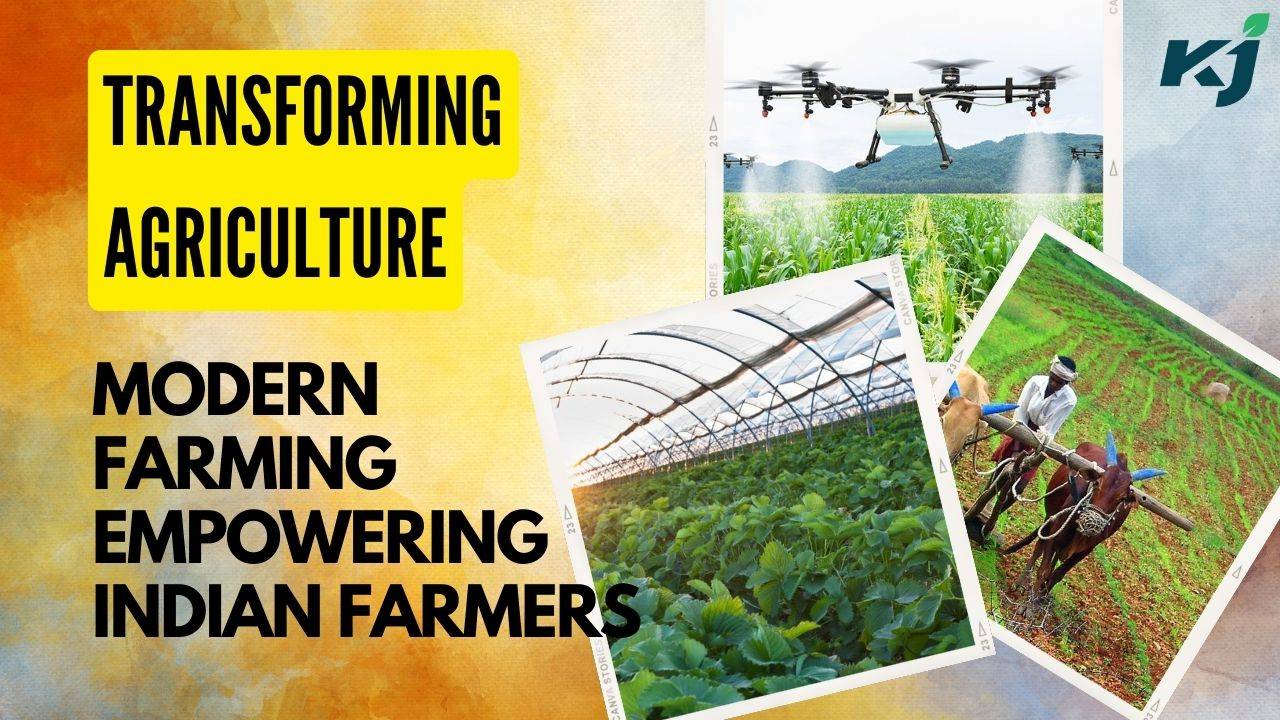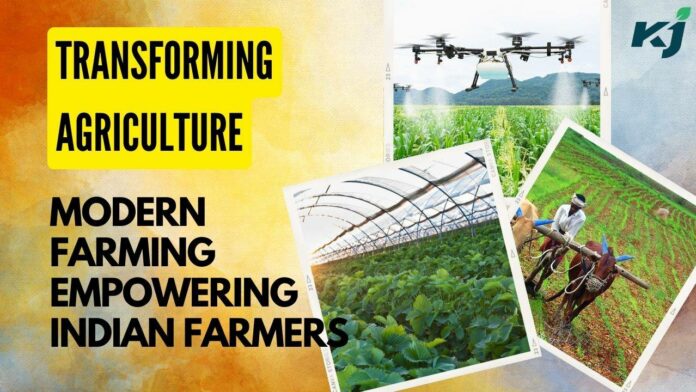
Agriculture has been the backbone of India’s economy for centuries, providing livelihood to a significant portion of its population. However, traditional farming practices have faced a number of challenges over the years, including unpredictable weather patterns, soil degradation, and inadequate yields.
In response to these challenges, modern farming practices have emerged as a promising solution to transform Indian agriculture. These innovative techniques, driven by technology and sustainable practices, are helping Indian farmers increase productivity, reduce risks and improve their overall quality of life. So, let’s explore the ways in which modern farming methods are benefiting Indian farmers.
-
Healthy farming
Precision farming, also known as smart farming, is a game changer for Indian agriculture. This includes the use of technology, such as GPS-guided tractors and drones, to accurately manage resources such as water, fertilizers and pesticides. This approach helps farmers optimize resource utilization, reduce waste and improve crop yields. By analyzing real-time data, farmers can make informed decisions about when and where to plant, irrigate and harvest their crops. This technology-based approach not only increases productivity but also reduces environmental impact.
-
Organic farming
Modern Indian farmers are increasingly adopting organic farming practices. This method emphasizes sustainable and environmentally friendly techniques, avoiding synthetic chemicals and genetically modified organisms (GMOs). Organic farming not only produces healthy and safe food but also preserves soil fertility and biodiversity. Additionally, organic produce commands higher prices in the market, which increases farmers’ incomes. This shift towards organic farming not only benefits the environment but also increases the financial well-being of Indian farmers.
-
Greenhouse farming
Greenhouse farming has revolutionized crop production in India. This controlled environment allows farmers to grow crops year-round, regardless of the weather outside. By carefully controlling temperature, humidity and light, farmers can grow high-value crops such as tomatoes, cucumbers and bell peppers with fewer pest problems and higher yields. Greenhouses are particularly beneficial in areas with extreme climatic conditions, providing stability to farmers’ incomes and reducing the risk associated with climate change.
-
Crop rotation and diversification
Modern farming practices encourage crop rotation and diversification, which help improve soil health and reduce the risk of pests and diseases. Instead of monocropping, where the same crop is grown over and over again, farmers are now encouraged to rotate different crops. This approach increases soil fertility and reduces the need for chemical inputs. Crop diversification also provides farmers with multiple sources of income, reduces their dependence on a single crop and reduces market price fluctuations.
-
Agritech Solutions
The proliferation of smartphones and internet connectivity in rural India has given rise to a range of agricultural technology solutions. Mobile apps and online platforms provide farmers with valuable information on weather forecasts, market prices, and best farming practices. These tools empower farmers to make informed decisions, reduce risks and connect directly with buyers, eliminating the need for middlemen and improving their bargaining power.
-
Sustainable irrigation techniques
Water scarcity is a major concern in many parts of India. Modern farming practices promote sustainable irrigation techniques such as drip irrigation and rainwater harvesting. Drip irrigation delivers water directly to plant roots, reducing water wastage and increasing crop yields. Rainwater harvesting helps farmers collect and store rainwater during the monsoon season, providing a reliable source of water during the dry season. These practices not only conserve water but also make agriculture more resilient to climate change.
Modern farming methods are changing the agricultural landscape in India. These innovative approaches driven by technology and sustainability are helping Indian farmers overcome traditional challenges and improve their livelihoods. Hygiene farming, organic farming, greenhouse farming, crop diversification, agricultural technology solutions, and sustainable irrigation techniques are some examples of strategies that are reshaping Indian agriculture.
As these methods continue to gain popularity, Indian farmers are experiencing increased yields, reduced risks, and better health. Thanks to these modern farming methods, the future of Indian agriculture looks bright indeed.
First Published: 22 Sep 2023, 16:05 IST
